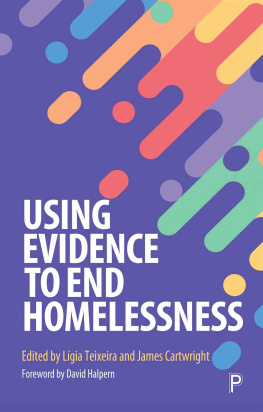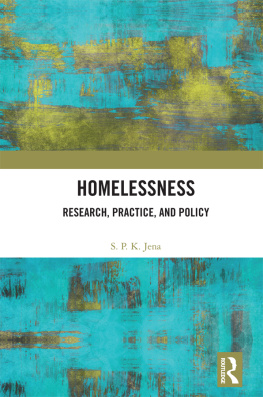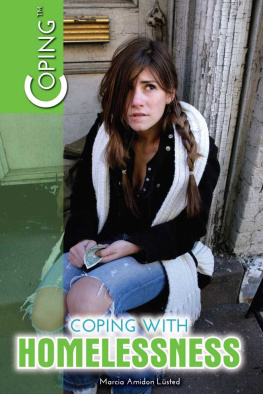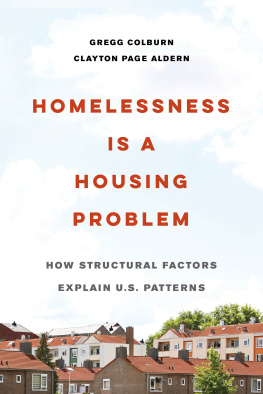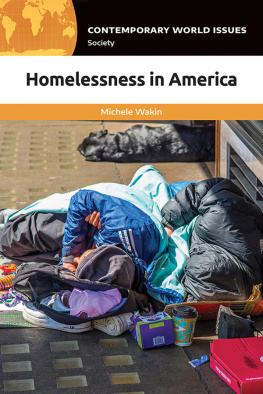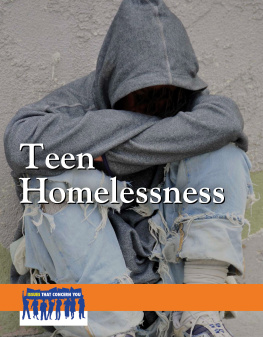
First published in Great Britain in 2020 by
Policy Press University of Bristol 1-9 Old Park Hill Bristol BS2 8BB UK t: +44 (0)117 954 5940 www.policypress.co.uk | North America office: Policy Press c/o The University of Chicago Press 1427 East 60th Street Chicago, IL 60637, USA t: +1 773 702 7700 f: +1 773 702 9756 www.press.uchicago.edu |
Policy Press 2020
The digital PDF version of this title is available Open Access and distributed under the terms of the Creative Commons Attribution-NonCommercial 4.0 licence (http://creativecommons.org/licenses/by-nc/4.0/) which permits adaptation, alteration, reproduction and distribution for non-commercial use, without further permission provided the original work is attributed. The derivative works do not need to be licensed on the same terms.
British Library Cataloguing in Publication Data
A catalogue record for this book is available from the British Library.
Library of Congress Cataloging-in-Publication Data
A catalog record for this book has been requested.
ISBN 978-1-4473-5286-0 paperback
ISBN 978-1-4473-5287-7 ePub
ISBN 978-1-4473-5410-9 OA PDF
The right of the Centre for Homelessness Impact to be identified as the editor of this work has been asserted by them in accordance with the Copyright, Designs and Patents Act 1988.
All rights reserved: no part of this publication may be reproduced, stored in a retrieval system, or transmitted in any form or by any means, electronic, mechanical, photocopying, recording, or otherwise without the prior permission of Policy Press.
The statements and opinions contained within this publication are solely those of the editors and contributors and not of the University of Bristol or Policy Press. The University of Bristol and Policy Press disclaim responsibility for any injury to persons or property resulting from any material published in this publication.
Policy Press works to counter discrimination on grounds of gender, race, disability, age and sexuality.
Cover design by Robin Hawes
From cover image: iStock/filo
Contents
David Halpern
Lgia Teixeira
Jon Sparkes and Matt Downie
Olly Grender
Danny Dorling
Campbell Robb
Neil Coyle and Bob Blackman
Dennis Culhane, Suzanne Fitzpatrick and Dan Treglia
Jonathan Breckon and Emma Taylor-Collins
Louise Marshall and Jo Bibby
Stephen Aldridge
Howard White and David Gough
Caroline Fiennes
Tracey Brown
Julia Unwin
Stephen Aldridge is Director for Analysis and Data at the Ministry of Housing, Communities and Local Government. A government economist by background, Stephen was previously Chief Economist and then Director of the Strategy Unit in the Cabinet Office. Stephen is a member of the National What Works Advisory Council; a member of the international advisory board for the UK Collaborative Centre for Housing Evidence; and other bodies. He is a fellow of the Academy of Social Sciences and a continuing fellow at the Centre for Science and Policy at the University of Cambridge.
Jo Bibby is Director of Health at the Health Foundation. Jo is responsible for developing and leading the Foundations Healthy Lives strategy to address the wider social and commercial determinants of health. Joining the foundation in November 2007, Jo initially led the development of the foundations influential portfolio of work in patient safety and person-centred care. Jo has worked in healthcare at local and national level for 25 years, including ten years at the Department of Health. As Head of NHS Performance, she oversaw the implementation of the policy agenda set out in the NHS Plan. At the NHS Modernisation Agency, Jo led an international quality improvement initiative Pursuing Perfection.
Bob Blackman is the Conservative MP for Harrow East and serves as Joint Secretary of the prestigious 1922 Committee within Parliament. He was elected London Assembly Member for Brent and Harrow in 2004 and was a member of Brent Council for nearly 24 years. During that time, he led the Conservative Group for 20 years and the Council for 5 years. Since being elected as MP for Harrow East in 2010 Bob has been able to bring his extensive experience in local government to bear on many of the issues facing the government today through his work on the Communities and Local Government Select Committee. In 2016, Bob was drawn in the Private Members Bill ballot, which gives backbench MPs a chance to put forward a piece of primary legislation. Bob put forward the Homelessness Reduction Bill with the support of the homelessness charity sector, particularly Crisis, which was one of the final pieces of legislation given Royal Assent before the 2017 general election. The Act was backed with 91 million of investment from the government, the Homelessness Reduction Act is the most well-funded Private Members Bill on record alongside being the longest and most substantial at 13 clauses. It is the only Bill of its kind to be explicitly backed by the work of a Select Committee. The Act came into force in April 2018 and the duty to refer in October 2018. The Act is recognised as the biggest reform in legislation in assisting the homeless in more than 40 years.
Jonathan Breckon has been Director of the Alliance for Useful Evidence since it was created at Nesta in 2012. Formerly Director of Policy and Public Affairs at the Arts and Humanities Research Council, he has had policy roles at the Royal Geographical Society, the British Academy and Universities UK. He is a member of the Cabinet Office What Works Council and a director of the Department for Educations What Works for Childrens Social Care. His research and professional interests cover politics and psychology, particularly the ever-awkward relationship between evidence and policy-making. He is a visiting professor at Strathclyde University and a visiting senior research fellow at Kings College Londons Policy Institute.
Tracey Brown has been the Director of Sense about Science since 2002. Under her leadership, the charity has turned the case for sound science and evidence into popular campaigns to urge scientific thinking among the public and the people who answer to them. It has launched important initiatives to expand and protect honest discussions of evidence, including AllTrials, a global campaign for the reporting of all clinical trial outcomes, and the Ask for Evidence campaign, which engages the public in requesting evidence for claims. It has challenged opinions and changed the behaviour of governments, media and corporations in the use of scientific evidence. Tracey leads Sense about Sciences work on the transparency of evidence used by governments in policy, to ensure that the public has access to the same evidence and reasoning as decision-makers. This has included drafting the Principles for the Treatment of Independent Scientific Advice, which were adopted into the UK Ministerial Code in 2010, the creation of a public interest defence to libel in the Defamation Act 2013 and the Evidence Transparency Framework, used to audit UK government in 2016 and 2017 and adopted by government audit agencies around the world.

